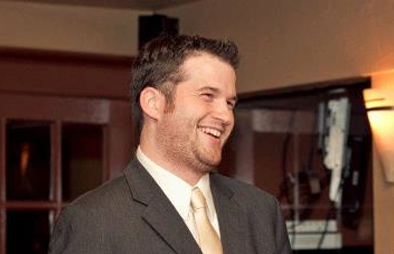When did you know that you wanted to work in food?
How did your previous work or life experience prepare you for a good food job?
Before catching the nonprofit bug, I was on track to work in traditional media with stints at news assignment desks and control rooms from Public Radio to Saturday Night Live. These experiences helped me see the world in a particular way and learn how to express ideas in the most effective and entertaining way possible. This filter has helped inform my work on our social media channels and when advocating for national food policy change through email campaigns. On top of that, I grew up seeing food as a something you had to do 3 times a day, but not something you had to think about. My mother took a WIC healthy eating class after having her first child in the late 1970s and those lessons helped inform our family's eating habits for the next 30 years. Not that this was an all-together bad thing; in fact, our food was much healthier than most of my friends growing up, but there was no thought to where this food came from, how it was produced, and how our purchasing choices affected the lives of food workers. Many people I have encountered in the "good food" movement see farm-fresh food or an unrushed family meal as a given ? that was certainly not the case for me and, I know, not the case for a lot of people in this movement. I try to hold that experience and bring it to my work every day.
What was the greatest obstacle you had to overcome in pursuing your Good Food Job dream?
I think the biggest obstacle for anyone pursuing their dream job right now, especially in food, is the job market. There are just so many talented people out there interested in food and food justice. This is obviously a great thing for this field to have so many eager, capable people looking to change the world around them, but unfortunately it means that there are many unemployed or undervalued workers in this field. The good news, however, is that while there are not enough paid opportunities, there is no shortage of opportunity. For me, straddling both the good food and new media fields, this has been true. I found that the best way to persevere is to just do it. If I wasn't able to work on these issues or grow a skill-set in my day job, I would look for volunteer opportunities that did. As someone who grew up in a working-class, union neighborhood, I have strong feelings about free labor and know there are plenty of employers or organizations that take advantage of this through unpaid internships or ill-conceived volunteer programs, but I am also a strong believer in the value of volunteerism for community and cause-based organizations. I have had great experiences with these organizations where I have been able to grow as a professional and work to further a cause that I believed in at the same time. These organizations helped make it possible to persevere.
What can you identify as the greatest opportunities in food right now?
Perhaps I am biased as an AmeriCorps alum and former AmeriCorps program officer, but I believe that the greatest opportunities in food are in the national service world. FoodCorps has been a huge success and will continue to provide opportunities for so many to get involved in food and in their community (or a new community). But there are also a growing number of positions popping up in various AmeriCorps programs that involve working in food. For example, my former organization, The Massachusetts Promise Fellowship has worked with The Food Project and other local organizations to create opportunities for people to take a leadership role in the food movement at these organizations. What these positions lack in compensation, they make up for in experience ? providing service members with the opportunity to own a project that they lead and see to fruition. These, I believe, provide the best opportunity for anyone looking to get into the food right now.
If you could be compensated for your work with something other than money, what would it be?
Most of my money is spent on food anyway, so if I could be compensated with my fair share of Good, Clean, and Fair food ? I'd take it in a heartbeat. I'd just need to figure out a way to pay my rent in kale!









